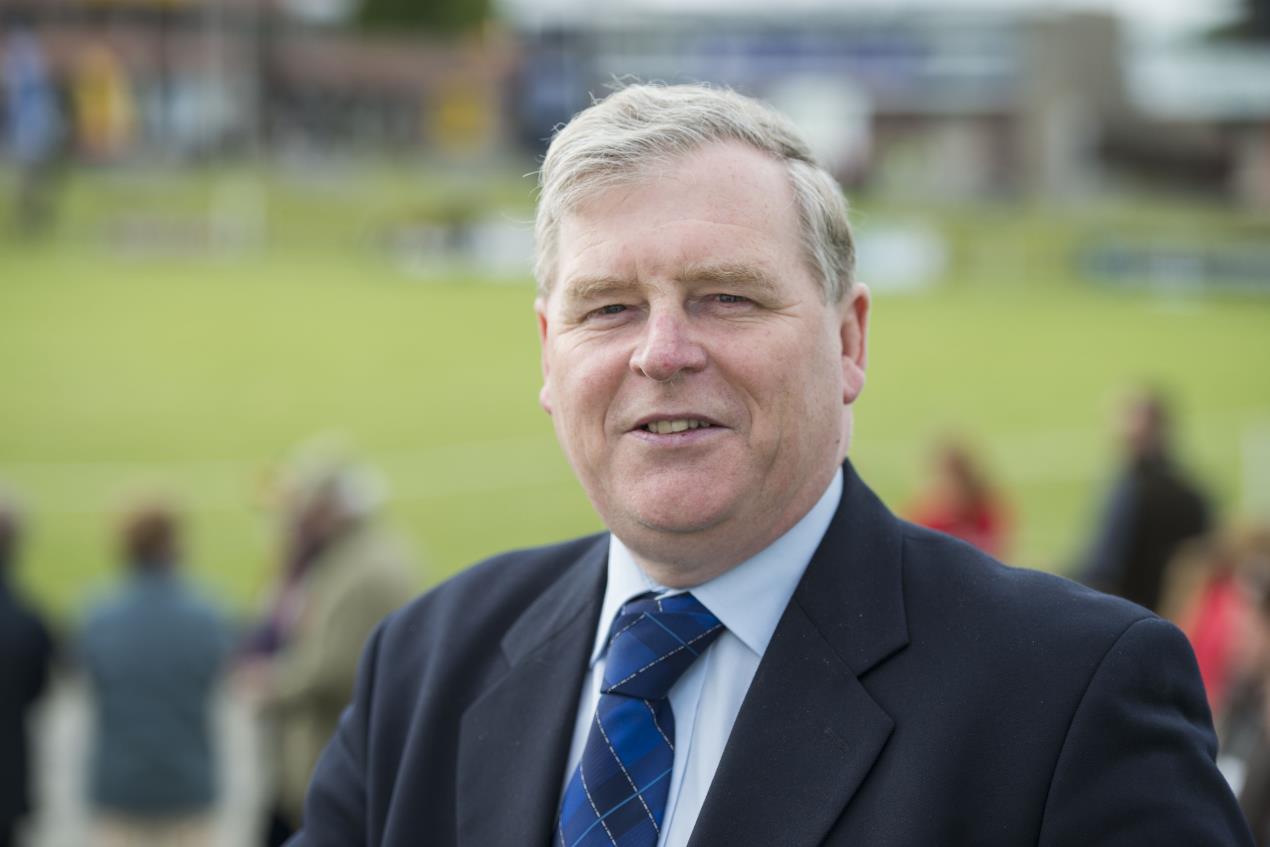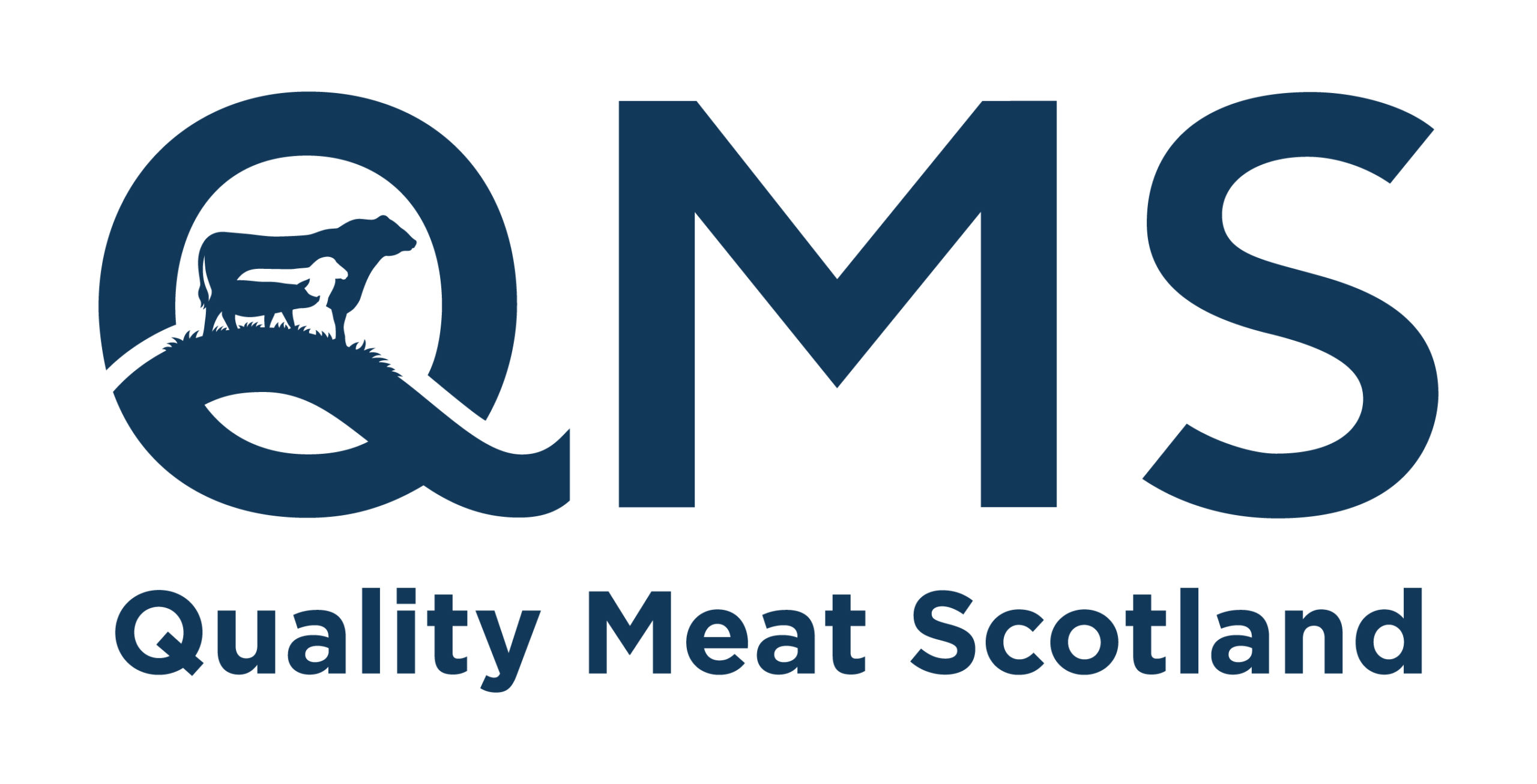QMS’ Chief Economist, Stuart Ashworth, will retire from Scotland’s red meat levy board at the end of March 2022.
For nearly 20 years, Stuart has led QMS’ economics team, analysing markets and policy impacts – from developments in agricultural policy to world trade and climate change policies – to help businesses in the red meat sector plan for the future.
Stuart was brought up on a small Yorkshire dales mixed livestock farm, and his life-long interest in figures was sparked when his father gave him the task of managing the requirements of the newly introduced VAT at the age of 14. Subsequently, he took over the preparation and maintenance of all the farm records and tax returns. He only stopped doing this when his father retired 30 years later.
This aptitude took Stuart to Newcastle University to study agricultural economics, followed by a job offer from SRUC, at the time the West of Scotland Agricultural College. Here he lectured on farm business and became involved in a broad number of research and consultancy projects managed by SRUC which took him across the world.
These projects, largely associated with the impact of economic and environmental policies on less favoured area farming, often involved travel to European Union member states and latterly accession states like Poland and Romania as they adjusted their agriculture to the policy and business environment of the wider European Union.
In 2003, after 23 years with SRUC, he joined QMS, seeing it as an opportunity to return to working more closely with primary agriculture.
When he started the role at QMS, the farming community was still recovering from foot and mouth, as well as dealing with the challenges, initially, of restoring international trade after BSE and then of capturing the benefits when international markets re-opened. They also faced a change in emphasis in agricultural policy towards the public goods delivered by farmers rather than food production alone.
As he leaves the role, Stuart observed that some of the issues the red meat sector had then and have today are not dissimilar:
“It is still about restoring faith in consumers in eating red meat. In the early 2000s, the terms vegetarian and vegan were rare but concerns existed about BSE, red meat and heart conditions and the loss of hedges, Today concerns still exist about red meat and human health while the environmental impact of livestock production has grown as a consumer interest. These remain as challenges for the industry going forward.”
Looking back at his long career, other defining changes he cites are the rise of out of home eating and the advent of fast food both in and outside the home, the internationalisation of supply chains and the change from production-orientated policy towards environmentally-orientated support.
However, he says perhaps the most significant change has been what technology has done “not only for animal breeding and production but also for the way in which data has become more accessible for economic analysis and for decision making.”
On his career as an economist, he says:
“I just love a good data set. It is at the core of what economists do, allowing us to hone our detective skills as it’s all about looking for concrete evidence, mining the data and working out what it means.”
He describes his role at QMS as more PPE (Politics, Philosophy and Economics) than just straight economics:
“We look at the economics – the data informing the supply and demand outlook and what’s happening to market prices. But this leads you into political analysis – barriers to trade, policy measures, government support of the industry and how business can operate in this environment; and then the philosophy comes in: for example, how do you get people to value food security or how do you balance environmental protection with secure food supplies and most importantly profitable businesses.”
On retiring this month, Stuart says:
“I feel fortunate to have been given so much opportunity from agriculture: a job I love, a long career, the people I’ve met and shared knowledge and ideas with, the travel, the different perspectives it’s brought. I am glad I was given the books as a teenager and being brought up on a farm has helped me through all my work to be able to recognise the practical farming challenges. Agriculture and the livestock sector in particular has been good to me and I hope I’ve played a small part by giving something back in return.”
Stuart is looking forward to time for more curling, trying lawn bowls and gardening “for food not flowers, of course”. There may even be time for some volunteering with outdoor projects but equally time to reflect and think about his next project which, he suggests, could well be associated with all that historical data that he hasn’t explored but which technology has made more easily accessible.
/ENDS
JCM Media Contact: Rose Moggach – rose@janecraigie.com or 07493 876646

